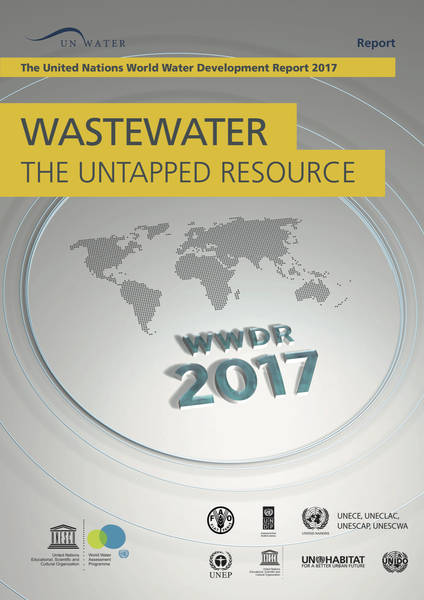Durban, South Africa, 22 March 2017– What if we were to consider the vast quantities of domestic, agricultural and industrial wastewater discharged into the environment everyday as a valuable resource rather than costly problem? This is the paradigm shift advocated in the United Nations World Water Development Report, Wastewater: the Untapped Resource, launched today in Durban on the occasion of World Water Day.
“Wastewater is a valuable resource in a world where water is finite and demand is growing,” says Guy Ryder, Chair of UN-Water and Director-General of the International Labour Organisation. “Everyone can do their bit to achieve the Sustainable Development Goal target to halve the proportion of untreated water and increase safe water reuse by 2030. It’s all about carefully managing and recycling the water that runs through our homes, factories, farms and cities. Let’s all reduce and safely reuse more wastewater so that this precious resource serves the needs of increasing populations and a fragile ecosystem.”
“The 2017 World Water Development Report shows that improved wastewater management is as much about reducing pollution at the source, as removing contaminants from wastewater flows, reusing reclaimed water and recovering useful by-products. […] Raising social acceptance of the use of wastewater is essential to moving forward”, argues UNESCO Director-General Irina Bokova in her foreword to the Report.
The United Nations World Water Development Report is a UN-Water Report coordinated by the UN World Water Assessment Programme of UNESCO. It argues that once treated, wastewater could prove invaluable in meeting the growing demand for freshwater and other raw materials.
Most human activities that use water produce wastewater. As the overall demand for water grows, the quantity of wastewater produced and its overall pollution load are continuously increasing worldwide. Over 80% of the world’s wastewater – and over 95% in some least developed countries – is released to the environment without treatment.
Once discharged into water bodies, wastewater is either diluted, transported downstream or infiltrates into aquifers, where it can affect the quality (and therefore the availability) of freshwater supplies. The ultimate destination of wastewater discharged into rivers and lakes is often the ocean with negative consequences for the marine environment.







